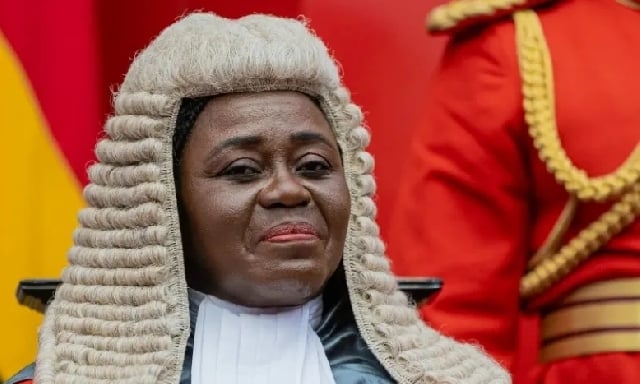The Centre for Democratic Movement (CDM) has expressed grave concerns regarding the suspension of Ghana’s Chief Justice, Gertrude Torkornoo, warning that this action potentially violates Ghana’s international legal commitments. In a forceful statement, the CDM condemned the suspension as a contravention of Ghana’s constitutional procedures and established international legal frameworks that safeguard judicial autonomy. The organization specifically cited Article 26 of the African Charter on Human and Peoples’ Rights and the UN Basic Principles on the Independence of the Judiciary, arguing that the government’s actions directly contradict Ghana’s responsibilities under these provisions. The CDM emphasized Ghana’s obligation to uphold judicial independence and shield the judiciary from executive interference, characterizing the Chief Justice’s suspension as a direct assault on this fundamental principle.
The CDM’s statement further criticized the process leading to the suspension, denouncing it as lacking transparency and fairness. This perceived lack of due process raises further concerns about the motivations behind the suspension and its potential impact on the integrity of Ghana’s judicial system. The organization has called for the intervention of international oversight bodies, including the African Commission on Human and Peoples’ Rights and the UN Special Rapporteur on the Independence of Judges and Lawyers, to ensure a thorough and impartial review of the situation. This appeal to international bodies underscores the CDM’s belief that the suspension represents a serious breach of democratic norms and warrants external scrutiny. The CDM also urged public vigilance and international attention, emphasizing that Ghana’s democratic future should not be sacrificed for political expediency.
The CDM’s response to the suspension goes beyond mere condemnation. The organization has announced its intention to engage diplomatic missions and international human rights institutions, seeking redress and holding Ghana accountable to international standards. This proactive approach demonstrates the CDM’s commitment to leveraging international pressure to reverse what they perceive as a dangerous precedent. The organization believes that international engagement is crucial to safeguarding judicial independence and ensuring that Ghana upholds its commitment to democratic principles.
Beyond demanding the immediate reinstatement of Chief Justice Torkornoo, the CDM is advocating for comprehensive structural reforms to protect the judiciary from future political interference. This call for systemic change suggests that the CDM views the suspension as symptomatic of a broader problem within Ghana’s political landscape – a vulnerability of the judiciary to undue influence from the executive branch. The CDM argues that strengthening the judiciary’s independence is essential to preserving the rule of law and ensuring the integrity of Ghana’s democratic institutions. They view this as a crucial step towards ensuring that similar incidents do not occur in the future.
The CDM’s statement concludes with a powerful assertion of the fundamental importance of judicial independence in a democratic society. They maintain that a truly independent judiciary is a cornerstone of a functioning republic and a necessary safeguard against abuses of power. By advocating for both the immediate reversal of the suspension and broader structural reforms, the CDM aims to protect the judiciary from political interference and uphold the principles of democracy and the rule of law in Ghana. Their actions underscore the crucial role of civil society organizations in holding governments accountable and advocating for the protection of fundamental rights and freedoms.
The situation surrounding the suspension of Chief Justice Torkornoo represents a critical test for Ghana’s commitment to democratic principles. The CDM’s response highlights the importance of a robust and independent judiciary in safeguarding these principles. Their call for international scrutiny and structural reforms underscores the need for ongoing vigilance and proactive measures to protect judicial autonomy and ensure the integrity of democratic institutions. The outcome of this situation will have significant implications for the future of democracy and the rule of law in Ghana.














